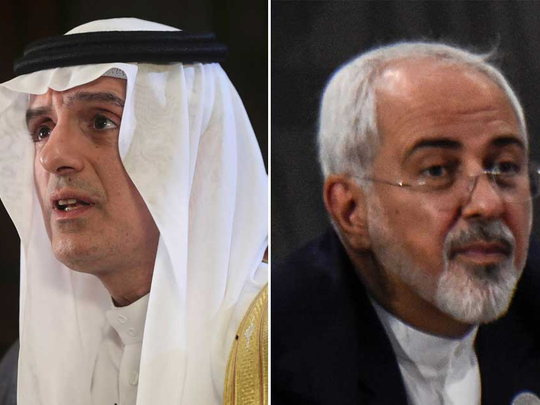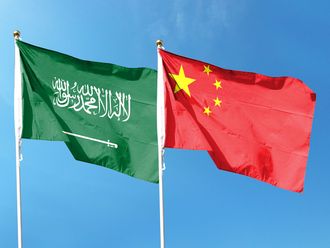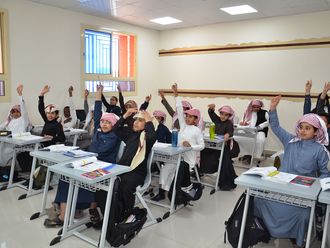
Manama: Iran cannot whitewash its record of terror as hard facts, those “stubborn things” as they were called by John Adams and Ronald Reagan, undeniably prove that it is the leading state-sponsor of terrorism, Saudi Foreign Minister Adel Al Jubeir has said.
“Nor can one get around the fact that Iran uses terrorism to advance its aggressive policies,” Al Jubeir said in an oped he wrote for the Wall Street Journal. “Iran cannot talk about fighting extremism while its leaders, Quds Force and Revolutionary Guard continue to fund, train, arm and facilitate acts of terrorism.”
The Saudi minister was apparently responding to an opinion piece “Let us rid the world of Wahhabism” by his Iranian counterpart Mohammad Javad Zarif and published last week in the New York Times.
“If Iran wants to demonstrate sincerity in contributing to the global war on terrorism, it could have begun by handing over Al Qaida leaders who have enjoyed sanctuary in Iran... Iran could also stop funding terrorist organisations, including Hezbollah, whose secretary-general recently boasted that his organisation gets 100 per cent of its funding from Iran. Iran could stop producing and distributing improvised explosive devices which have killed or injured thousands of US troops in Iraq and Afghanistan. And Iran could halt supplying weapons to terrorists and sectarian militias in the region who seek to replace legitimate governments with Iranian puppets,” he said.
Listing some of the “numerous terrorist attacks since 1979,” Al Jubeir accused Iran of using terrorism to advance its aggressive policies.
“Iranian officials sometimes lament sectarian strife and violence. But here again, the facts are stubborn. The region and the world were at peace with Iran until the Ayatollah Khomeini’s 1979 Islamic revolution, whose principal slogan remains ‘Death to America!’ Mullahs seized power and vowed — as written in their constitution — to export the revolution and spread their ideology through religious and sectarian conflict,” he said.
“To export the revolution, Iran set up so-called Cultural Centres of the Revolutionary Guard in many countries, including Sudan, Nigeria, Syria, Lebanon, Yemen and the Comoros Islands. The aim was to spread their ideology through propaganda and violence. Iran went so far as to propagate that the Shiite Muslims living outside Iran belong to Iran and not the countries of which they are citizens. This is unacceptable interference in other countries and should be rejected by all nations.”
Al Jubeir accused the ideology of Khomeinism, driven by an appetite for expansion, fueled by anti-western hatred and motivated by sectarianism, of energising and empowering extremism.
He suggested that it is only by ridding the world of such a “toxic and radical” mindset that sectarianism be contained, terrorism be defeated and calm be restored to the region.
The Saudi minister charged that Iranian leaders have, since signing the nuclear deal with the US last year, taken to pointing fingers at others to assign blame for the regional problems that they helped create.
“Before buying into their rhetoric, consider a few questions: Which country issues a fatwa for the execution of author Salman Rushdie, a death threat that is still in force today? [Iran] What country has attacked more than a dozen embassies inside its own territory in violation of all international laws? [Iran] What country managed, planned and executed the 1996 attack in Khobar Towers against the American Marines? [Iran] Do these answers describe a country that is serious about combating terrorism and extremism?”
Al Jubeir said that the rest of the Islamic world has unanimously condemned Iran’s behaviour.
“In Istanbul in April, the Organisation of Islamic Cooperation formally rejected and deplored Iran’s policies of sectarianism, interference in the affairs of others and support for terrorism.”
Saudi Arabia that has contributed more than $100 million to create a global centre for counterterrorism at the United Nations and established a 40-member Islamic Military Coalition to combat terrorism and extremism has a clear record as attested to by the international community, Al Jubeir said as he contrasted it with Iran’s.
“Iran’s record is one of death and destruction, as the situation in Syria and parts of Iraq clearly attests. Words will not change that; concrete action will.”
Al Jubeir said that his country “would welcome better relations with Iran, based on the principles of good neighborliness and noninterference in the affairs of others.” “This means Iran has to abandon its subversive and hostile activities and stop its support for terrorism,” he said.












